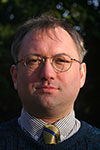Interpreting the Mensural Notation of Music: An Expert System Based on the Theory of Johannes Tinctoris
Dr Jeffrey J. Dean: Principal Investigator
Dr Christian Goursaud: Researcher
Dr David Lewis: Researcher
Interpreting the Mensural Notation of Music is a 48-month interdisciplinary collaborative research project funded by the Arts & Humanities Research Council (2017–2021) that brings together experts in music history, music theory, and digital musicology to develop a twenty-first-century response to a challenge posed by the notation of late-medieval music and addressed by the fifteenth-century music theorist Johannes Tinctoris (1435–1511).
As part of this project, Christian is preparing digital critical editions and associated contextual studies of Antoine Busnoys’s Missa L’homme armé, and Johannes Tinctoris’s Missa primi toni and Missa Quinti toni irregularis. This forms part of a more general investigation of changing music-notational practices in the late fifteenth and early sixteenth centuries.
Visit the project website
Visit the project’s profile at the UK Research and Innovation Gateway to Research
Johannes Tinctoris and Music Theory in the Late Fifteenth Century, ed. Christian Goursaud and Ronald Woodley (Turnhout: Brepols, 2020)
Christian is Lead Editor of this forthcoming book, which unites contributions from world-leading specialists and Early Career Researchers in a resource that is broadly focused on Tinctoris's theoretical works, and which explores their relevance to a wide range of issues in late-fifteenth century music including polyphonic and modal theory, improvisatory practices, and manuscript source studies. It also presents a conspectus of recent researches in Tinctoris's biography, accompanied by transcriptions and facsimiles of previously unpublished documentary material. The publication features audio examples specially recorded by The Clerks (dir. Edward Wickham), and Uri Smilansky & Randall Cook.
Visit the Brepols website
Christian’s research concerns the aesthetically beautiful and intellectually stimulating body of choral music created by European composers in the fifteenth and early sixteenth centuries. He seeks to illuminate how and why this music was composed, written down, published, and performed. Christian has a particular fascination with the collecting-together of music in manuscript books and how such acts contextualise music in time and place. Documentary records of the activities of musicians, scribes, and their patrons also provide exciting and challenging opportunities to flesh out the world these pieces of music inhabited
As an active professional singer of music as well as an academic, Christian believes that performance should form an important part of our modern engagement with renaissance music, and he would like to invite audiences into the experience of reading and singing from the mensural music notation of the time. This is an activity that perhaps brings us closest of all to the reality of renaissance music making and thought. His continuous engagement with the music theory of Johannes Tinctoris (c.1435–1511) underpins such exploratory research; though his importance to our modern understanding of early renaissance music has been appreciated for some time, only now are the full ramifications of his extensive writings beginning to be explored.
Grants and funding
- Arts & Humanities Research Council: Research Grant, ‘Interpreting the Mensural Notation of Music: An Expert System Based on the Theory of Johannes Tinctoris’, 2017–2021 (£837K).
- Arts & Humanities Research Council: Doctoral Studentship, ‘The Neapolitan Presentation Manuscripts of Tinctoris’s Music Theory: Valencia 835 and Bologna 2573’, 2012–2015 (£42K).
PhD Dissertation Outline
‘The Neapolitan Presentation Manuscripts of Tinctoris’s Music Theory: Valencia 835 and Bologna 2573’, is a detailed codicological and palaeographical study of two important textual sources of Tinctoris’s music theory. Treating the manuscripts as historical artefacts that encode information about the priorities and concerns of those who brought them into existence, the thesis presents their first complete physical descriptions, and employs detailed palaeographical, iconographical, and historical analysis to establish the likely circumstances of, and reasons for, their production.
Research Supervision
Christian is available to supervise graduate research projects to doctoral completion, and welcomes enquiries from potential students with interests in his areas of research:
- Fifteenth and sixteenth-century music and music theory.
- Codicology/manuscript studies.
- Palaeography.
- Modern performance of mensural music notation.
- Medieval and Renaissance cultural and intellectual history.
Print & Online
Booklet notes to Thomas Tallis: Gentleman of the Chapel Royal, The Gentlemen of HM Chapel Royal, Hampton Court Palace, dir. Carl Jackson (Resonus Classics compact disc RES10229, 2018).
Johannes Tinctoris and Music Theory in the Late Fifteenth Century, ed. Christian Goursaud and Ronald Woodley (Turnhout: Brepols, forthcoming in 2020).
‘The Production and History of Valencia 835’, in Johannes Tinctoris and Music Theory in the Late Fifteenth Century, ed. Christian Goursaud and Ronald Woodley (Turnhout: Brepols, forthcoming in 2020).
With Ronald Woodley, ‘Bologna 2573 and the Naples–Hungary Axis’, in Johannes Tinctoris and Music Theory in the Late Fifteenth Century, ed. Christian Goursaud and Ronald Woodley (Turnhout: Brepols, forthcoming in 2020).
Conference Papers
- ‘Scribal Process in the Presentation Manuscripts of Tinctoris's Music Theory’ Medieval and Renaissance Music Conference, Sheffield, 2016.
- ‘Visual Decoration in the Presentation Manuscript Sources of Tinctoris’s Theoretical Works’: Medieval and Renaissance Music Conference, Brussels, 2015.
- ‘Scripts and Scribes of the Neapolitan Sources of Johannes Tinctoris’s Theoretical Works’: Johannes Tinctoris and Music Theory in the Late Middle Ages and Early Renaissance, London, 2014.
- ‘Johannes Tinctoris and the Order of the Ermine’: Medieval and Renaissance Music Conference, Certaldo, 2013.
